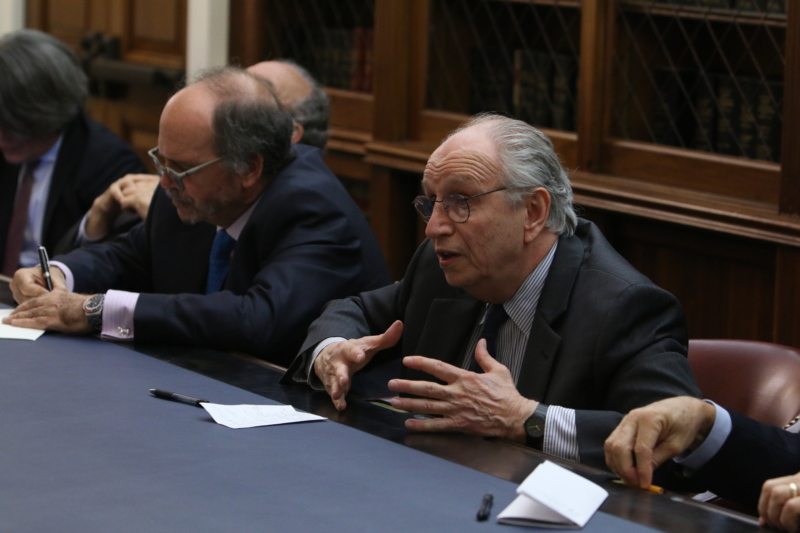Rising Brazil: The Choices Of A New Global Power
What should we expect from a newly powerful Brazil? Does the country have the capacity and leadership to be a central actor in addressing critical global and regional problems?
In an interview with The Brazilian Report, Peter Hakim, Dialogue president emeritus, discussed what Biden’s diplomatic approach would look like in Latin America. In particular, Hakim addressed immigration, the humanitarian crisis in Venezuela, and the United States’ relationship with Brazil.
“There are several ways that Joe Biden would be a real advance in Latin America. There would be a change in attitude and style of diplomacy. He would try to restore the kind of relationship with Cuba that Obama was aiming for. I think he would reduce the pressure on Venezuela and focus more on the human side of that crisis.”
“The big issue will be migration. It’s been very difficult for any government since Reagan to develop a serious new policy toward immigration. Republicans and Democrats both agree that the immigration policy of the United States is a broken system. I don’t think you’re going to see a brilliant new policy, but I think you’re going to see improvements throughout related to DACA, temporary protected status, and the treatment of asylum seekers and refugees under international legal agreements.”
“The United States has a lot of experience in trying to change regimes. Most recently, we’ve tried regime change in Iraq and Afghanistan with terrible results. I don’t think that the United States is in any position to make the kind of threat that either Maduro agrees to resign, or the United States is somehow going to replace him. I think Biden is going to pay a lot of attention to the refugees from Venezuela that are now in terrible situations given the pandemic… My sense is that the attention will turn more to how you alleviate the enormous suffering that the Maduro regime is causing.”
“There may be some actual confrontations with Brazil on issues that I think a Biden administration will find important. One of those issues will be the environment, particularly the deforestation in the Amazon… Good human rights policies in countries tend to help unify countries and strengthen democratic processes, and I suspect that Biden is going to be less generous towards Brazil and its policies towards its indigenous groups, women, and Afro-Brazilians.”
“On the whole, I don’t think there’s going to be any kind of startling new opening toward Latin America simply because Latin America is not a high priority on either party’s agenda right now. It’s not threatening, and it’s not economically strong enough to really make a difference in its economic relations with the United States…The United States is an important trading partner of Latin America, but two-thirds of its trade is with one country: Mexico.”
“Today, I think that Brazil is an outlier. In many parts of the world, Brazil has become a pariah. The United States has basically kept its distance from Brazil. Even Donald Trump has not shown much in the way of new policy directions towards Brazil."
What should we expect from a newly powerful Brazil? Does the country have the capacity and leadership to be a central actor in addressing critical global and regional problems?
President Lula da Silva triumphantly announced that he and his Turkish counterpart had persuaded Iran to shift a major part of its uranium enrichment program overseas—an objective that had previously eluded the US and other world powers. Washington, however, was not applauding.
Hugo Chavez, the Venezuelan president, has clearly been enticed by the Libyan drama, where his longtime friend and ally, Muammar al-Qaddafi, is under siege from rebel forces.
 Inter-American Dialogue
Inter-American Dialogue